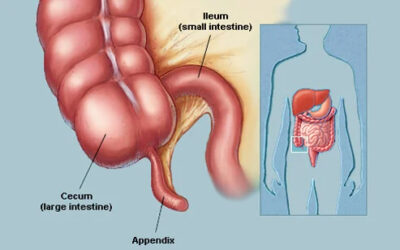-
 Call Now:
8010 552 552
7595 838 844
Call Now:
8010 552 552
7595 838 844
-
 Email Me:
[email protected]
Email Me:
[email protected]
The appendicitis or appendix is located at the intersection of the small and large intestines. It’s a thin, finger-shaped tube that is roughly four inches long. The appendix is normally found in the lower part of the right abdomen.
The role of appendix is unclear. One notion is that the appendix stores beneficial bacteria and helps the digestive system function properly following diarrhea disorders. Others say the appendix is nothing more than a vestigial organ. Thus, the surgical removal of the appendix has no known side effects, says the best doctor for appendicitis laparoscopic surgery in kolkata.
Appendicitis is caused by an obstruction in the lining of the appendix, which leads to infection. The bacteria spread quickly, inflaming, swelling, and filling the appendix with pus. The appendix might rupture if not treated promptly, says the best appendix surgeon in Kolkata.

Appendicitis is a condition in which the appendix becomes inflamed. The pain in your lower right abdomen is caused by appendicitis. In most patients, though, pain begins about the navel and subsequently spreads. Appendicitis discomfort usually worsens as the inflammation worsens, finally becoming severe.
According to the top appendix specialist doctor, appendicitis can affect anyone; however, it is most common in adults between the ages of 10 and 30. Surgical removal of the appendix is the standard treatment.
Appendicitis can cause the following signs and symptoms:
Depending on your age and the position of your appendix, the location of your discomfort may differ.Because your appendix is relatively higher when you are pregnant, the discomfort may appear to originate in your upper abdomen.
Appendicitis can lead to the following complications if left untreated:
A pus-filled pouch that develops in the abdomen. If your appendix explodes, you can get an infection pocket (abscess). In most situations, an abscess is drained by inserting a tube into the abscess via your abdominal wall. The tube is left in place for two weeks, and antibiotics are given by the appendix specialist doctor to clear the infection.
Your doctor will most likely collect a history of your signs and symptoms and physically examine your abdomen to help diagnose appendicitis.
Imaging tests are performed. To diagnose appendicitis or rule out other causes of pain, your doctor may order an abdominal X-ray, abdominal ultrasound, computed tomography (CT) scan, or magnetic resonance imaging (MRI).
The inflamed appendix is typically removed during surgery. Antibiotics may be given to you before surgery to prevent infection.
If your appendix bursts and an abscess forms around it, the abscess can be drained by inserting a tube into the abscess via your skin. After the infection has been controlled for several weeks, the surgery to remove appendix can be performed.
Appendectomy can be done as an open operation with a 2 to 4 inch (5 to 10 centimeter) long abdominal incision (laparotomy). Alternatively, the procedure can be performed through a few minor abdominal incisions (laparoscopic appendectomy surgery). The surgeon puts special surgical equipment and a video camera into your belly during a laparoscopic appendectomy to remove your appendix.
Laparoscopic Appendicitis surgery, in general, allows you to heal faster and with less discomfort and scarring.For older adults and obese people, it may be a better option.
However, not everyone is a candidate for laparoscopic surgery. If your appendix has ruptured and the infection has spread or you have an abscess, you may require an open appendectomy, which permits the surgeon to clean the abdominal cavity.
After your appendectomy, expect to spend one or two days in the hospital.

Met him with my kin who was having belly pain and black colored stool. Endoscopy revealed a tumour in stomach, moderately large. We followed Dr. Purnendu’s opinion. He did a laparoscopic surgery and removed it…

He is a dependable laparoscopic surgeon with skilled hands. He delivers excellent outcome. Highly recommend him.

Recently I have been operated by Dr Purnendu Sir. I must say that being a Laparoscopy Surgeon Sir is very much capable to keep me stable only after 2hours of operation…
Mon to Sat: 8 am – 5 pm, Sunday: CLOSED